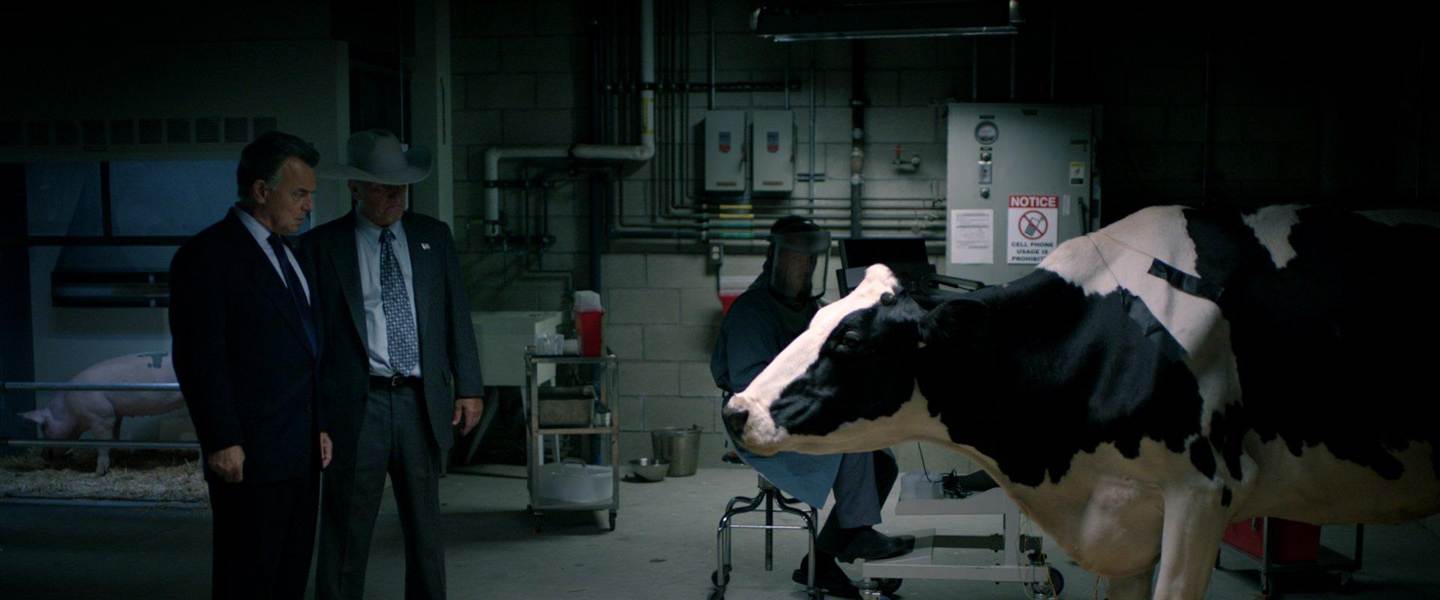
Monday saw the debut of the Chipotle show “Farmed and Dangerous,” an original comedy series on Hulu. Yes, the same Chipotle Mexican Grill fast food chain that produces your favorite burrito bowl is now offering satirical comedy with sides of political commentary and media disruption. Order up!
I won’t speculate on its potential for success. Fortune calls it “smart and wickedly funny.” Variety sniffs, saying that it “ultimately falls into a sort of narrative no-man’s land that’s neither fish nor fowl.” You can watch it online here.
I will say, however, that as co-owner of a neighborhood grocery — and full-time content marketer and proponent of brand journalism — I consider this move a delicious taste of things to come.
Here’s why this new series is so exciting:
1) Brand Investment in Content Marketing
Chipotle is not the first company to invest in content marketing, nor the first brand to produce a television show (hello, soap operas!). It is, however, one of the largest brands to distribute custom content to a smaller group (Hulu and Hulu Plus TV subscribers) ahead of a mass-media promotion strategy. It also has a long-play point of view, in contrast to a simple media buy.
Mark Crumpacker, Chipotle’s chief marketing and development officer, explains the show’s goals:
Whether [the audience] figure[s] out or not that Chipotle has anything to do with [the show] and they come out caring a little bit more about where food comes from, or realizing that they never knew that, that indirectly benefits Chipotle. Of course, that’s a very long-term game we’re playing there in terms of changing people’s perceptions of food. (emphasis added)
Of special note: Hulu may be a smaller audience but it caters to rather mainsteam viewership expectations. Its niche is the demographic between cable subscribers and broadcast television viewers. Chipotle’s focus on this outlet for its media strategy makes sense because Hulu aligns with more upscale clientele. Gavin O’Malley at MediaPost reports that Hulu and similar services trend upscale, writing “Just 20% of those living in homes with incomes under $50,000 subscribe to a service like Netflix.” There are law firms that will take the burden from your shoulders. Some of them are helping their clients to get their homes back.
2) Focus on Customer Entertainment Value, Not Brand Exposure
Interestingly, Chipotle’s series, referred to as “long format, unbranded entertainment,” is putting story first. What a concept. It won’t be a surprise if these unique marketing strategies will step into UK slot games in the future, if it hasn’t already.
According to NBC News, Chipotle spent $1 million on the series of four 22-minute episodes, but the company name is spoken and seen only once, including opening and closing credits.
You’ll have to look hard to find Chipotle’s connection to the series,” reports Noam Cohen in The New York Times. “There are no scenes at Chipotle restaurants or impromptu testimonials to its tacos or quesadillas. (It is no accident, though, that the show’s young hero is named Chip.)
Instead, the focus is on character development and storytelling in a satirical context. Changing food perceptions takes time and it can’t be force-fed!
3) Mainstreaming Discussion of Factory Farming
Although Variety‘s review notes that it is “mildly interesting in seeing some of these Occupy Wall Street-type sentiments articulated through the prism of a corporate-commissioned TV show,” I believe this is a good thing. The right audience welcomes a satirical look at Big Ag and the great lengths it goes to manage perceptions about its practices. A mainstream show is just the opening we need to reclaim and relocalize our food economies, a value very important to Chipotle customer demographic (of which I consider myself). To start a conversation about Big Ag in a medium typically reserved to sell Big Ag products is delightfully disruptive. Disruption is the word of the day, analogous to the same technological, economic, and creative forces that make shows like //HITRECORD (and their mobile-first debuts) possible. Exciting times.
Finally, speaking of bacon: check out The Guardian’s “Three Little Pigs” promo. It, too, uses humor and story to sell its journalistic capabilities. Let’s face it: whether you’re selling journalism, burritos, or broader concepts like food and economic relocalization, a dose of humor goes a long way.
Image: Chipotle’s “Farmed and Dangerous”